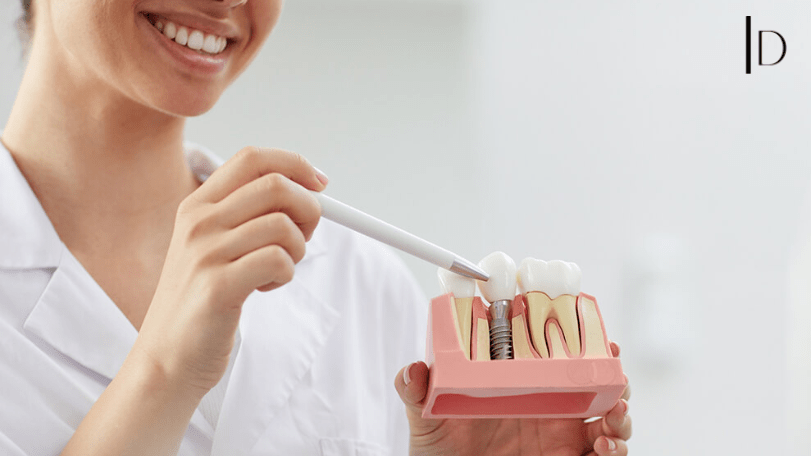
Understanding Loose Teeth Causes, Treatments, and Prevention
May 10, 2024Loose teeth can be a distressing experience for anyone, whether it’s a child losing their baby teeth or an adult facing the potential loss of permanent teeth. It’s essential to understand the causes behind loose teeth, the available treatments, and the preventive measures that can be taken to maintain optimal dental health. In this comprehensive guide, we’ll delve into the various factors contributing to loose teeth and explore effective strategies for addressing and preventing this common dental issue.
Causes of Loose Teeth:
- Periodontal Disease: One of the primary causes of loose teeth is periodontal disease, commonly known as gum disease. This condition occurs when bacteria build up in the gums, leading to inflammation and eventual damage to the tissues supporting the teeth. As the gums weaken, they can become loose and may eventually fall out if left untreated.
- Trauma or Injury: Accidents, sports injuries, or other types of trauma to the mouth can also result in teeth loosing. The impact from such incidents can damage the ligaments and tissues surrounding the teeth, causing them to become loose or dislodged.
- Poor Oral Hygiene: Inadequate oral hygiene practices, such as infrequent brushing and flossing, can contribute to the development of plaque and tartar buildup on the teeth. Over time, this can lead to gum disease and eventual tooth loss.
- Osteoporosis: Osteoporosis, a condition characterized by weakened bones, can also affect the jawbone. As the bone density decreases, the supporting structure for the teeth becomes compromised, increasing the risk of tooth mobility.
- Hormonal Changes: Hormonal fluctuations, such as those experienced during pregnancy or menopause, can impact gum health and increase the likelihood of developing loose teeth. This is due to changes in blood flow to the gums and increased susceptibility to gum disease.
Treatments for Loose Teeth:
- Professional Dental Care: If you notice that your teeth are becoming loose, it’s crucial to schedule an appointment with your dentist as soon as possible. Depending on the underlying cause, your dentist may recommend various treatment options, such as deep cleaning to remove plaque and tartar, periodontal therapy to treat gum disease, or splinting to stabilize loose teeth.
- Scaling and Root Planing: For individuals with gum disease, scaling and root planing may be necessary to remove bacteria and calculus from below the gum line and smooth the tooth roots. This can help promote gum reattachment and prevent further progression of periodontal disease.
- Tooth Splinting: In cases where teeth are broken, tooth splinting may be used to stabilize them. This involves bonding the loose tooth to neighboring teeth for support, allowing the gums and surrounding tissues to heal.
- Bone Grafting: If bone loss has occurred due to periodontal disease or other factors, bone grafting procedures may be recommended to regenerate lost bone tissue and strengthen the jawbone. This can provide a stable foundation for the teeth and prevent further tooth mobility.
Preventive Measures:
- Maintain Good Oral Hygiene: Practicing proper oral hygiene habits, such as brushing your teeth twice a day, flossing daily, and using mouthwash, is essential for preventing plaque buildup and gum disease.
- Visit Your Dentist Regularly: Regular dental check-ups and cleanings are essential for detecting any signs of gum disease or tooth mobility early on and addressing them before they progress.
- Avoid Tobacco Use: Smoking and chewing tobacco can contribute to gum disease and bone loss, increasing the risk of loose teeth. Quitting tobacco use can significantly improve oral health and reduce the likelihood of tooth mobility.
- Eat a Balanced Diet: A diet rich in fruits, vegetables, lean proteins, and calcium can support overall dental health and contribute to strong teeth and bones.
Conclusion:
Loose teeth can have various causes, including gum disease, trauma, poor oral hygiene, osteoporosis, and hormonal changes. However, with prompt professional care and preventive measures, it’s possible to address loose teeth effectively and maintain a healthy smile for years to come. By understanding the causes behind tooth lose and implementing proactive dental care strategies, you can safeguard your oral health and preserve your teeth for a lifetime. Remember, early intervention is key to preventing further damage and achieving optimal dental outcomes.
